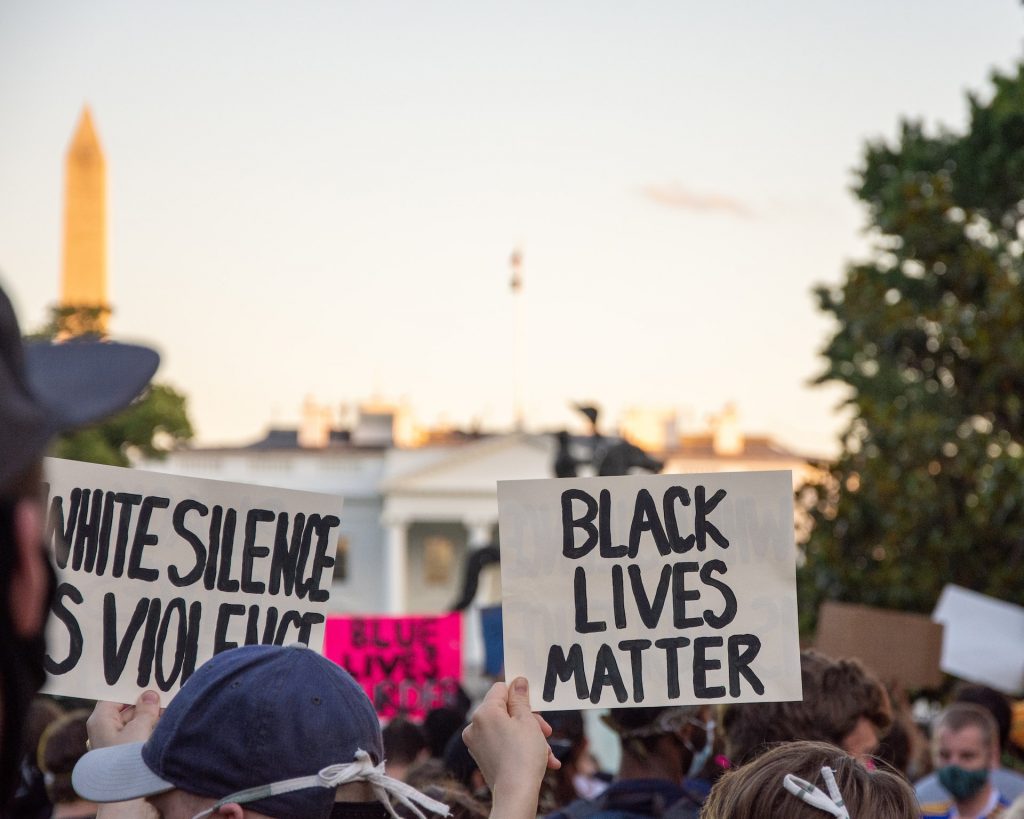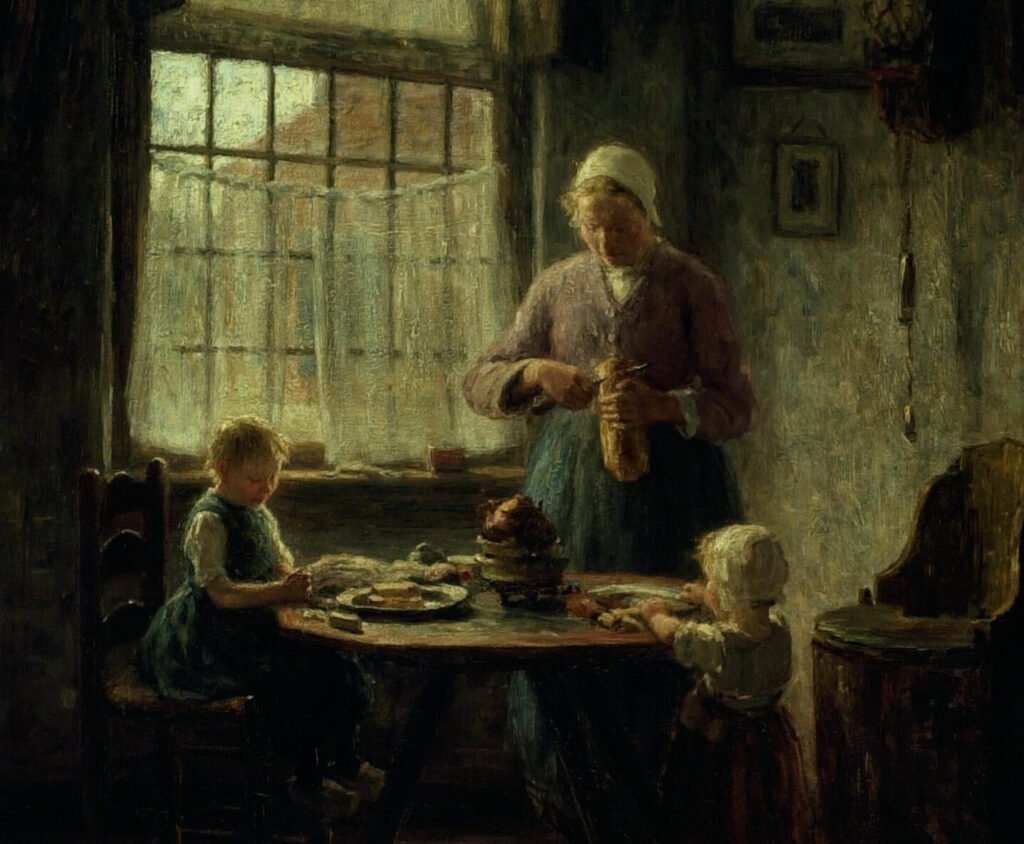Perhaps one of conservatism’s greatest failures is its tendency to define objectives in terms of what it is against. Instead of furnishing members with a new direction for society, it guides constituents by framing issues in the negative. When “wokeness” became a political issue, mainstream conservatives opted to call themselves the negative: “anti-woke,” instead of arguing for the positive: freedom of association. The ongoing synthesis often leaves conservatives defending an amorphous middle ground. The conservative finds himself fighting the aggressive DEI policies on the Left, yet unable to enjoy unfettered culturism on the Right. This halfhearted volition can often be attributed to conservatism itself, but I would submit to you another pressing factor: fear.
Lukewarm conservatives will never stray from his unsustainable middle way so long they fear the Right-wing tradition, even if it could be used as a vision for counteracting the Left. Since the World War, any discussion of nationalism has been dismantled by political correctness, as if Right-wing notions must be caged for the good of society. Each generation since the war instills its children with this same fear of traditional culture and natural instinct — a societal fear created for the sole purpose of imprisoning “The Strong Gods.”
“The postwar consensus marshals cultural and political power to condemn the return of the strong gods in the strongest possible terms—racist, xenophobic, fascist, bigoted. Political correctness has many forms, but they are united in a shared repudiation of anything solid and substantial in public life, whether in the form of nationalism or strong affirmations of constraints that human nature places on any healthy society, constraints that get articulated by all forms of traditional morality.”
R. R. Reno, “Return of the Strong Gods” – May 20171https://www.firstthings.com/article/2017/05/return-of-the-strong-gods
Each accusation of “racism,” “xenophobia,” or “bigotry” functioned as links in a chain. Postwar liberalism dedicated itself to restraining the strong gods of nationalism, and conservatives were more than happy to join. But this bipartisan denouncement of the Right came at a cost, and as time progressed, society’s rhetoric of correctness shifted. Accusations of racism became less specific, bigotry became a commonplace buzzword, and the blessings of nationalism became the values of Satan himself.
The Postwar Confession
Right-wing values had been demonized, but the values of the Right were more than just political issues, encompassing societal and cultural issues as well. Every aspect of civilization had be trained to resist the nationalist impulse, and the regime theologians were more than happy to join.
For pastors dedicated to the postwar consensus, rhetoric for spreading the great liberal commission often had a spiritual element. Theologians with pietist tendencies often focused on John 18:36, becoming the default political filter for every acceptable thought. This interpretation argues that Christians ought merely to exist in the status quo — upheld by the postwar consensus — and to simply endorse the liberal surrounding liberal order as fact. Patriotism (so long as it was devoid of any nationalist tendencies) was given a pass, though those waving the national flag were often warned of idolatry.
Theologians who empathized with a social gospel had to find their own spin. It was crucial for them to maintain the importance of Christian political action without giving credibility to Right-wing politics. For this approach to work, the principles of individualism were often associated with the kingdom of heaven, while the principles of populism were conflated with the kingdom of darkness. For Christianity Today’s editor-in-chief, this connection couldn’t be more explicit.
“Something dark is haunting the world right now. The old gods of blood and soil are rustling. We have endured the same before. But we must not let them claim the cross. The cry ‘Christ is king’ is true. That’s why it must never be emptied with a satanic kind of kingship.”
Russell Moore, “‘Christ Is King’ Is Not The Slogan Some White Nationalists Want It To Be”, published by Christianity Today on March 28, 20242https://www.christianitytoday.com/ct/2024/march-web-only/christ-king-antisemitism-russell-moore-candace-owens.html
Publishers in the evangelical industrial complex had dedicated an entire genre to this political theology, characterizing national sovereignty as a form of Satanism. David Ritchie, a co-speaker with Russell Moore at the 2024 American Values Coalition Pastor’s Conference, explicitly names this mysterious connection in his book, titled: “Why do the Nations Rage? The Demonic Origin of Nationalism.” Yet this deep-seated hatred of national sovereignty was not a recent theological development. It originates from the World War era, a sentiment intentionally forged with the rise of globalism.
International in scale, the World Conference on Church, Community, and State was held at Oxford in 1937. As a part of the conference, a series of papers were distributed, each presenting their own case for a global federation. One paper was written by W.A. Visser ‘t Hooft, the first secretary general of the World Council of Churches. Another was written by Reinhold Niebuhr, a 30-year professor at Union Theological Seminary. Each author contributed to the globalist cause in their own way, including Philip Kerr, the 11th Marquess of Lothian, writing a piece with the title “The demonic influence of national sovereignty.” 3See “The Universal Church And The World Of Nations” – https://archive.org/details/universalchurcha006907mbp Even before the inception of the United Nations, the globalist theology of anti-nationalism had found its talking points.
Even recently, with the rise of Christian Nationalism, regime theologians accused nationalist movements of demonic energy and occultism — even though they were formulated to be explicitly Christian. Some conservatives played along with the postwar charade, while others were baffled. Christian Nationalism, even in its worst form, was clearly not the ushering in of Satan’s worldly kingdom, yet the accusations never stopped coming. For The Gospel Coalition contributor Sam Martyn, nationalism was always a form of idolatry — incompatible with the gospel itself.
“Nationalism isn’t a neutral ideology, a benign cultural stump around which the missionaries must plow. Nationalism is an idolatrous ideology presenting itself as a religious surrogate and a competitor to the Christian gospel. This competition may manifest overtly, as in the case of Turkish nationalism. Or it can reside subtly, almost invisibly, within a culture—or even within an American missionary.”
Sam Martyn, “Doing Missions When Nationalism Is The Local Religion”, published by The Gospel Coalition on July14, 20224https://www.thegospelcoalition.org/article/when-nationalism-is-religion/
What started as a postwar consensus was now recited as a postwar confession. Each part of the Regime’s Christian Cabal shaped its message to spread this globalizing doctrine, abandoning Christ’s church in the process. Each iteration of the integration process transformed the pillars of Christianity into the pillars of Democracy. In many cases, the average conservative was able to recognize the farce. The ideal of national sovereignty continues to spread even though progressives have manufactured an entire Christian heresy to oppose it, but the problem of fear remains.
The Courage To Win
In a number of respects, I am pleased with the progress of conservatism. The Overton window has shifted in meaningful ways, with bans on Critical Race Theory, outlawing surgical abortion procedures, and puberty blocker bans. Yet at the same time, many of these wins could also be attributed to the “anti-woke.” Boasting an affinity for classical liberalism, the anti-woke movement was largely defined by what it was against, not by any long-term values. For those of us who want more for future generations, real progress can only be made when conservatism’s greatest fear is finally conquered.
But overcoming the collective fear of nationalism — of the strong gods — is easier said than done. The greatest threat to the liberal order lies dormant behind an ancient vault, and though we possess the key, it is still unclear if we have the determination to unlock it. Restoring a Right-wing order would require more than enacting a few civil policies. It is a total worldview shift; from artificial rules to natural law, from pervasive egalitarianism to hierarchies ordained by the divine. It is not a response to liberalism, it is a vision to replace it.
Christianity recognizes the entire created world as a monarchy. Christ is King, and he rules over all — both spiritually and physically. This fundamental order permeates every inch of society, and it is His Word that commands all of life. He has set the boundaries of the nations (Acts 17:26), and everything that breathes ought to praise Him (Psalm 150:6). So there is no need for Christians to continue the conservative search for a middle ground — the halfway point between Left and Right. Christianity is inescapably Right-wing, and Christ himself is the strong God.
For the Lord is a great God, and a great King above all gods.
In his hand are the deep places of the earth: the strength of the hills is his also.
The sea is his, and he made it: and his hands formed the dry land.
Psalm 95:3-5
Sources:
- 1
- 2
- 3See “The Universal Church And The World Of Nations” – https://archive.org/details/universalchurcha006907mbp
- 4




Leave a Reply